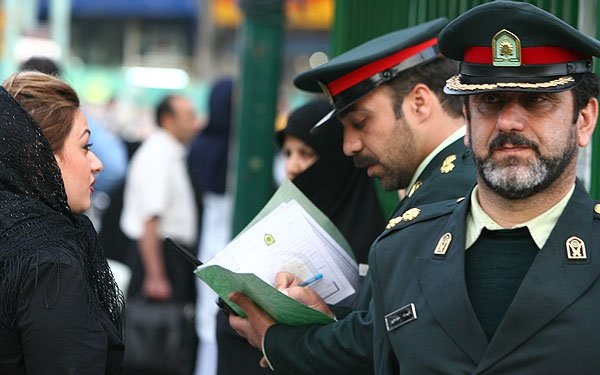Australia/Israel Review
The Media and the Truth About Iran
Oct 27, 2021 | Hossein Ronaghi

I am a blogger and internet freedom activist in Iran, and I have a message that millions of Iranians are desperate for you to hear: The Western media is failing the Iranian people.
There have been five nationwide uprisings against the regime in our country in the past four years. Our government has slaughtered protesters and tortured political prisoners to suppress them. Yet most people in the West – even those who consider themselves informed on Iran – don’t know our reality because foreign media coverage consistently overlooks or denies our reality.
For us, it is as if there are two Irans – the one where we live and another that you read about. Your Iran is defined by a pesky nuclear negotiation. Ours is much worse. It is a religious police state where we live in fear, with countless red lines that most dare not cross. It is a country of repression, censorship and violence. I would know – I have spent six years in its jails.
After the 2009 Green Movement protests, countless Iranians were detained and imprisoned. I was thrown into Evin prison in Teheran. I had helped Iranians bypass internet censorship, and for that “crime,” the Revolutionary Guards’ intelligence unit charged me with “acting against national security.” Writing this article could bring the same charge again.
In Iran, thinking can be a crime. The Ministry of Culture and Islamic Guidance enforces this by closing down magazines and tearing pages out of books. The textbooks taught in our schools are full of hate, such as bigotry toward the Baha’i faith and the promotion of terrorism. Our newspapers print lies about the regime’s popularity, our nation’s history and anti-government protests. Only newspapers approved by the intelligence services are allowed to publish.
Roaming morality police brutalise women for not wearing the mandatory hijab. They burst into parties where there is alcohol and co-ed mingling to beat and arrest young people. Repeat “offenders” are imprisoned, publicly flogged or executed.
This isn’t 1984 or The Handmaid’s Tale. This is our Iran.
The virtual world doesn’t escape control. Facebook, Twitter and other platforms have been banned. Social-media monitors scour the web to identify and arrest those who post content deemed to violate religious dignity or insult the regime’s leaders. This was another of my “crimes”.
Political activities are forbidden, aside from state-approved ones like rallies against the US or Israel. Dissidents are jailed for simple acts of civil disobedience like removing their headscarves or holding up photos of their murdered children.
Even in death, Iranians aren’t free from harassment and other indignities perpetrated by the state. Many relatives of those killed by the regime aren’t allowed to hold funerals. They often are charged a fee to have their loved one’s body released or are required to pay for the bullet or rope used to kill them.
For those kept alive, torture comes in many forms. Some are subjected to severe beatings, rape or whippings. Others face physical deprivation, threats and psychological torture. When I was in prison, the guards tortured me and brought me close to death. I lost a kidney and was denied proper treatment. To this day, I struggle with the effects of that torture.
This is our reality. Yet when we look abroad, we see the media portray another Iran. As protests raged across Iran in November 2019 and the Islamic Republic shut off the internet and dispatched military units to slaughter more than 1,500 protesters, a Bloomberg Iran correspondent tweeted about an unexpected snowfall in Teheran.
When the regime shot down Ukraine International Airlines Flight 752 in January 2020, murdering 176, many Western media reports said our president had no knowledge of the attack – but gave no evidence for the claim.
In Iran, we protest as loudly as we can and post videos online, but the reality doesn’t find its way into most Western media reports. Meanwhile, journalists tweet about trivia like new shopping malls and ignore the real story of what’s happening in our country. They are showing you an imaginary Iran.
In the real Iran, we are familiar with the long shadow of state suppression. We aren’t victims of global ignorance but of a deliberate and systematic attempt by the Islamic Republic to manipulate world opinion through apologists in the foreign media. Thus, you’ve read that there is no internal opposition to the Islamic Republic. That’s wrong. We the people are the opposition.
What we ask of you is simple: to learn about Iran, listen to us, share our stories. You have been told that your solidarity would hurt us, that talking about our struggle would put us at risk. That is a lie. It is your silence and indifference that threaten us.
We have lost friends who fought for freedom from this regime. We have been in its jails and seen its torture chambers. Writing this could land me back in prison. But if that’s the price for giving a voice to the voiceless, it will be worth it.
Hossein Ronaghi is an Iranian blogger and freedom-of-speech activist. Reprinted from the Wall Street Journal. © Dow Jones and Co., reprinted by permission, all rights reserved.
Tags: Iran






